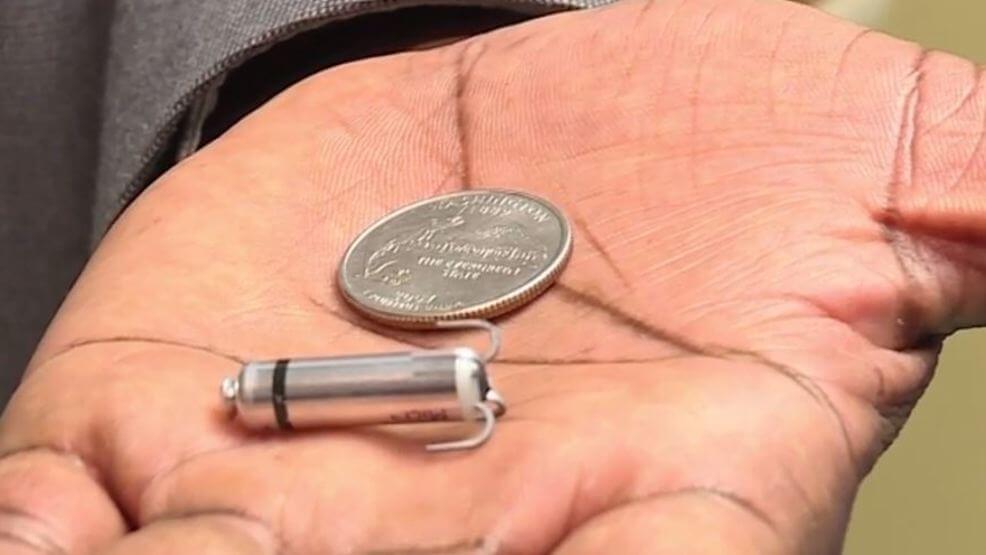[fusion_dropcap boxed="yes" boxed_radius="5" class="fusion-content-tb-dropcap"]T[/fusion_dropcap]he timing on new cardiac technology available at McLaren Flint could not have been more perfect for Michael Johnson, age 62, of Grand Blanc. His interventional cardiologist, Ethiraj Raj, MD, recently diagnosed him with bradycardia, and he was in need of a pacemaker to treat it. This condition is characterized by a slow or irregular heart rhythm, usually 60 beats per minute or less. At this rate, the heart is unable to pump enough oxygen-rich blood to the body during normal activity or exercise, causing dizziness, fatigue, shortness of breath or fainting spells. Pacemakers are the most common way to treat bradycardia to help restore the heart’s normal rhythm and relive symptoms by sending electrical impulses to the heart to increase the heart rate.
As luck would have it, Mustafa Hassan, MD, an electrophysiologist who specializes in heart rhythm disorders, was able to see Michael and offer the Medtronic Micra® Transcatheter Pacing System (TPS) as a treatment option. Comparable in size to a large vitamin, the Micra TPS provides patients with the most advanced pacing technology at one-tenth the size of a traditional pacemaker. It is also unique because unlike traditional pacemakers, the device does not require cardiac wires (leads) or a surgical “pocket” under the skin to deliver a pacing therapy. These were all important factors in Michael’s treatment options.
“Michael is on dialysis, and his upper extremity veins are being used for that,” states Dr. Hassan. “We would normally use these veins for a traditional pacemaker, making the options for treating his bradycardia more complicated. This is an exciting new treatment option for all patients but especially someone like Michael. The device is small enough to be delivered through a catheter and implanted into the heart with small tines, providing a safe alternative to conventional pacemakers without the complications associated with leads or a pacemaker pocket.”
Michael was able to go home the day after having the amazingly small device inserted into the lower right chamber of his heart.
“I had episodes of blacking out over the past three years,” states Michael. “The episodes really worsened last November. I had even blacked out once last fall when I was laughing. The ablation I had to treat my irregular heartbeat at that time only helped the upper right chamber. The loop recorder they were using to monitor me after the ablation detected that my heart would stop beating sometimes for up to 30 seconds. I’m thankful for this pacemaker device and Dr. Hassan. It was also a blessing not to have to travel far to get the procedure done.”
Patients who receive the Micra TSP they also can have peace of mind knowing that should they need a second device, the first can be turned off and remain in the body and a new device can be implanted without risk of electrical interaction. The technology is also approved for both 1.5 and 3 Tesla full-body magnetic resonance imaging (MRI) scans should this type of diagnostic imaging be needed by the patient in the future.
“This is truly innovative technology,” adds Dr. Hassan. “It is very rewarding for me to be able to offer a new cutting-edge treatment option to patients.”
— Originally published on Monday, May 15, 2017 by McLaren Flint

